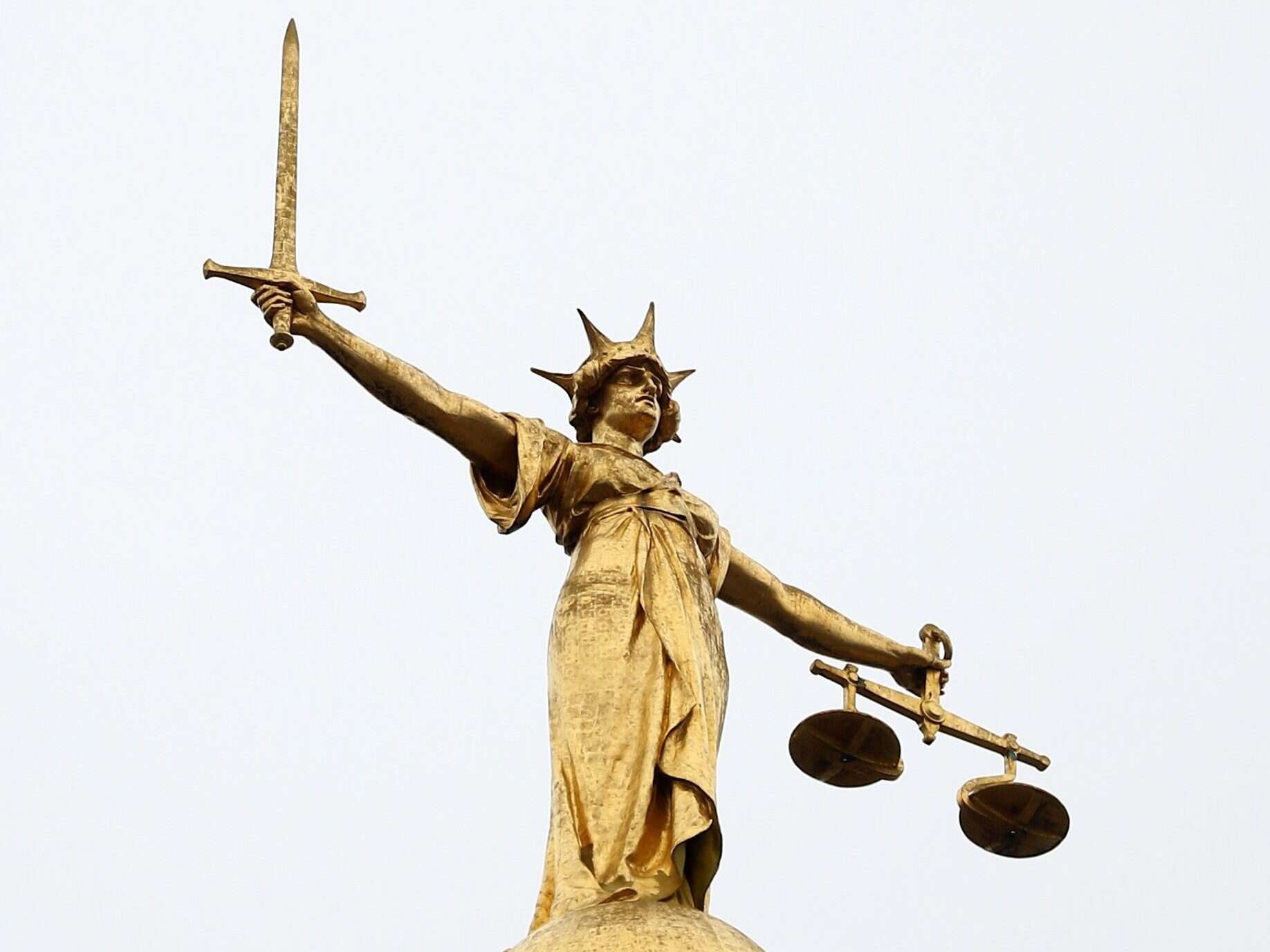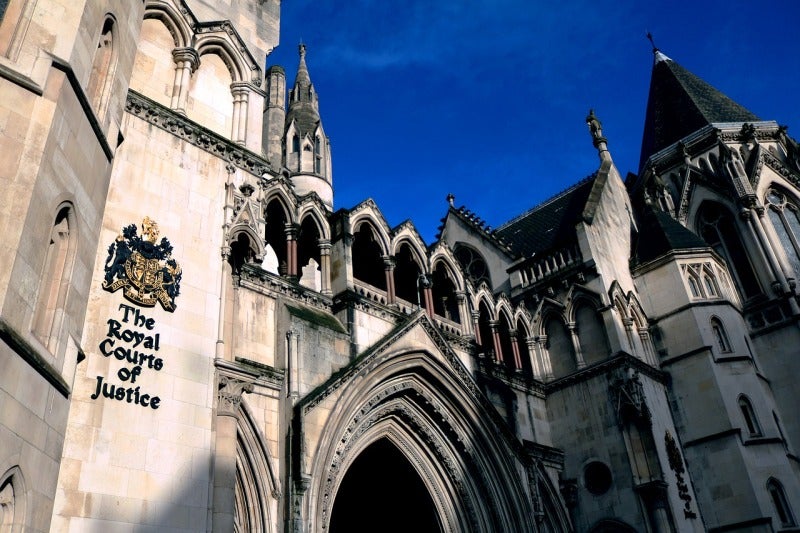
Journalists could dial into Old Bailey hearings for the first time ever today as courts have been praised for adapting “surprisingly well” to offering remote access.
Court hearings are increasingly being held remotely, by phone and video conference, as people follow official advice to stay at home to slow the spread of coronavirus (Covid-19).
Several journalists have told Press Gazette they were impressed by the efforts made by the court service to ensure they had access to hearings, despite a few tech teething problems.
The civil courts were the first to adapt, but this morning the Old Bailey allowed reporters to dial in to hearings from home for the first time after an application from BBC, PA and Evening Standard journalists.
New jury trials have been halted, with partially heard cases continuing under new social distancing measures. Although other hearings are still being held at many courts.
New guidance from the Ministry of Justice states: “In considering the use of telephony and video technology, the judiciary will have regard to open justice, as they do now.
“Public galleries in court rooms will remain open to public access, and dedicated press seats will continue to allow journalists to report on hearings.”
Reporters are required to contact individual courts to ask how they can dial into remote hearings, and until now criminal courts were largely refusing this on the basis of existing laws.
But yesterday the Coronavirus Bill, which opens up proceedings to be broadcast to the public by video or audio, finished its journey through Parliament.
Tristan Kirk, courts correspondent for the Evening Standard, said that until this morning’s success with the Old Bailey he had been told by various courts over the past week that he could not be given remote access.
This shows things are “shifting quickly in places”, he told Press Gazette.
“One court told me ‘business as usual’, which obviously it isn’t. The courts I think generally have been criticised a little bit for being slow to adapt, so the business as usual line was what came down from the minister and that has been reflected in our attempts to get on criminal hearings and listening in.”

Evening Standard courts correspondent Tristan Kirk speaking at the Society Of Editors Conference 2018 in Manchester on 5 November, 2018. Picture: Society of Editors
Kirk said he expected access to improve because of the new bill.
“If they don’t respond to that soon, I’m hoping this week, there would be a serious open justice problem because there are still sentencing hearings, plea hearings, preliminary hearings, and the like – and it doesn’t make an awful lot of sense to put the journalists in a position where they have to either miss the hearing or attend in person, given the circumstances.”
Some criminal courts have been unusually receptive: a judge at Norwich Crown Court has made an agreement with Archant’s Eastern Daily Press and Norwich Evening News titles to ensure a reporter can cover cases remotely via Skype.
Steven Downes, editor specialist at Archant Norfolk, said: “We look forward to making the most of this unusual facility, and continuing to bring our audience stories from the courtrooms.”
The Royal Courts of Justice have remained open, with PA’s High Court staff members split between staying on site and working remotely from home.
PA’s law service editor Sian Harrison told Press Gazette: “We have spent the past week or so working on arranging access to virtual hearings, because we are all very concerned that open justice does not fall by the wayside in the intense and necessary rush to keep as many people as possible out of the courts.
“It is a credit to the judiciary and the court staff that they have been able to push ahead with virtual hearings in a very short space of time, and that the press have been included in the arrangements being made.”

Royal Courts of Justice, London. Picture: Pixabay
Harrison particularly praised the Family Division of the High Court which she said transitioned quickly to this new way of working, possibly because it was already using video technology in some cases.
A PA reporter who covered the first case held entirely over Skype last week in the Court of Protection relayed what she learned from the experience to the judges, with her feedback included in the Family Court’s new guidance on remote access.
She told the court the hearing had “worked well” and that she was able to “perform all of the tasks we would usually perform in person to ensure the fair, accurate and contemporaneous reporting of proceedings”.
Another journalist who sat in on the hearing remotely, freelance Catherine Baksi, told Press Gazette there were only a few minor hiccups despite the fact “courts and technology do not fit easily together”.
But she only found out about the trial by chance after seeing a tweet from one of the barristers involved, prompting her to ask for the dial-in details.
“Had I not seen the tweet, I would not have known the case was taking place. I think that until journalists get more familiar the new way of working, there is a risk that cases will go ahead without journalists knowing about them or observing them.
“When the doors of the court are closed, open justice and scrutiny by the press become even more important.”
Gareth Corfield, a court reporter for technology website The Register, dialled in to another High Court hearing yesterday and said he found the experience “almost entirely positive” despite some technological issues.
He added that the court had shown a “very proactive approach, which I think is really valuable”.
Journalists were also able to remotely access a bail hearing for the Wikileaks founder Julian Assange’s extradition hearing held yesterday, although there were difficulties in hearing everything that was said due to the variety of audio and video link-ups involved.
Another instance this week saw journalists proactively sent a transcript immediately after a remote hearing had finished to compensate for problems with the audio.
Other difficulties include not always knowing who is speaking, not being able to report on extra dimensions such as the body language of witnesses, and not being able to go in and out of different courtrooms after discovering a case is not newsworthy without first contacting all the judges’ clerks for dial-in details.
But Kirk pointed out one positive that could come if the technology is adopted long-term: journalists being able to keep tabs on two cases at distant courts in the same morning, expanding their coverage.
Harrison said: “There will be teething problems along the way, but we hope that the level of co-operation shown so far continues so we can deal with these quickly and get on with the business of reporting the courts to the highest standard.”
Read all Press Gazette’s coverage of the coronavirus pandemic and the news industry here
Picture: Reuters/Hannah McKay
Email pged@pressgazette.co.uk to point out mistakes, provide story tips or send in a letter for publication on our "Letters Page" blog
